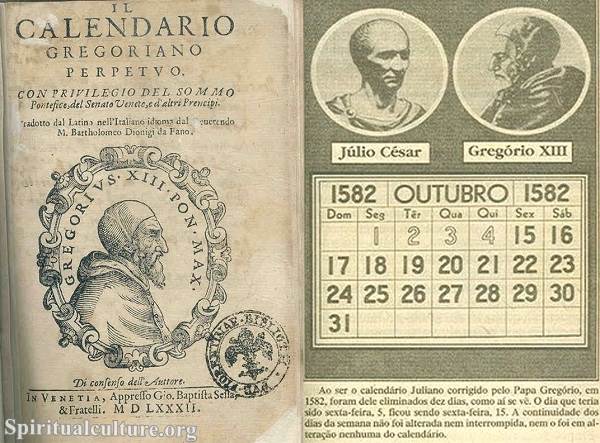In every corner of the world, human beings have reached toward the transcendent, yearned for truth, and tried to make sense of the mystery of life. From the banks of the Ganges to the chapels of Europe, from desert mosques to mountaintop monasteries, people have sung, prayed, meditated, fasted, and told stories of creation, redemption, and return. But with so many different religions—sometimes even opposing beliefs—can we say they all teach the same thing deep down?
As Spiritual Culture, we invite you to explore this profound question not to reduce religion into sameness, but to uncover a deeper unity that does not erase difference. This article will journey through the spiritual heart of the world’s major traditions, examining their ethical teachings, views of the divine, and ultimate human purpose. And along the way, we will ask: what unites the human spirit beneath the surface of difference?
🧭 A Shared Human Longing
The Quest for Meaning and Belonging
Every religion arises from the same human ache—a yearning to understand who we are, why we suffer, and how we belong in the universe. Whether expressed through myths or mantras, rituals or revelations, each tradition offers a lens into the soul’s search for something greater.
Common Questions, Varied Answers
- Where did we come from?
- What is the purpose of life?
- What happens after we die?
- How should we treat others?
Though the answers differ, the questions themselves form a common thread running through all religious traditions.
🌍 Ethical Overlap Across Traditions
The Golden Rule and Compassionate Action
Despite doctrinal differences, nearly every religion teaches some version of the Golden Rule—treat others as you would like to be treated.
H4 – Teachings from Around the World:
- Christianity: “Do to others as you would have them do to you.” (Luke 6:31)
- Islam: “None of you truly believes until he wishes for his brother what he wishes for himself.” (Hadith)
- Buddhism: “Hurt not others in ways that you yourself would find hurtful.” (Udana-Varga 5:18)
- Hinduism: “This is the sum of duty: do not do to others what would cause pain if done to you.” (Mahabharata 5:1517)
- Judaism: “What is hateful to you, do not do to your neighbor.” (Talmud, Shabbat 31a)
This ethical resonance suggests a deep moral intuition shared by all humanity—an inner compass toward kindness, humility, and justice.
🔍 Different Paths, Similar Aims
The Many Roads to Transcendence
At a mystical level, many spiritual traditions speak of transcending the ego, realizing a deeper self, or awakening to the Divine.
Mystics Across Borders
- Sufi Muslims speak of fana (annihilation of the self in God)
- Christian mystics like Meister Eckhart speak of union with God
- Hindu Vedanta teaches that the Atman (soul) is Brahman (the Absolute)
- Zen Buddhism points to the no-self and sudden awakening (satori)
These mystical paths do not deny difference, but they echo each other in describing a dissolving of separation and a union with ultimate reality—whether that is named God, the Tao, Nirvana, or simply “What Is.”
📖 Sacred Texts: Unity and Distinction
Speaking Different Languages of the Same Longing?
Every sacred text is a mirror of its culture and time. Yet beneath their unique forms, many scriptures share overlapping themes:
- Creation stories that place humans in relationship with the cosmos
- Laws and commandments to guide ethical living
- Stories of prophets, teachers, or enlightened ones showing the way
- Visions of justice, peace, and final fulfillment—a future hope
Still, each scripture also bears unique claims: the Incarnation of Christ in Christianity, the Prophethood of Muhammad in Islam, the Dharma of the Buddha, or the Torah as covenant in Judaism. These are not interchangeable—but they point toward sacred particularity, not generic spirituality.
⚖️ Where Religions Differ: Core Theological Divergences
Monotheism, Polytheism, Non-Theism
Religions do not all teach the same theology. For example:
- Christianity teaches One God in Trinity, and salvation through Christ.
- Islam affirms absolute monotheism and denies any partners with God.
- Hinduism has a rich tapestry of deities but also teaches one underlying Absolute (Brahman).
- Buddhism, in its original form, is non-theistic and focuses on liberation from suffering, not union with a god.
- Judaism emphasizes the covenant between God and Israel and the centrality of Torah.
Each of these presents a distinct metaphysical vision—not simply different words for the same truth.
🧘 Common Spiritual Practices
Ritual, Meditation, Prayer, Fasting
Religions express the sacred through discipline and devotion—though the form may vary, the function often overlaps.
Shared Forms of Devotion:
- Prayer: Seeking connection with the divine (salat, salah, davening, contemplative prayer)
- Meditation: Cultivating awareness and inner stillness (zazen, vipassana, centering prayer)
- Fasting: Practicing self-restraint and purification (Ramadan, Lent, Ekadashi)
- Pilgrimage: Journeying to sacred places (Mecca, Jerusalem, Kashi, Bodh Gaya)
These practices shape the soul, quiet the ego, and open space for sacred encounter—whether with God, the Self, or the Present Moment.
🕊️ The Deeper Unity: Not Sameness, But Shared Sacredness
Unity in Yearning, Not Uniformity in Doctrine
The idea that “all religions teach the same thing” often comes from a noble desire—to recognize shared humanity, to promote peace, and to reject religious superiority. But oversimplifying difference erases the richness of each tradition.
Instead of seeking sameness, we can honor resonance—a shared longing, a sacred hunger, a common ache for transcendence.
As Rumi wrote:
“The lamps are different, but the Light is the same.”
This does not mean every religion is the same lamp. But perhaps they all point toward the same Light—the Divine Mystery beyond names, yet present in every name.
✨ Reflect and Reimagine
So—do all religions teach the same thing deep down?
Not exactly. The forms, doctrines, and visions of the Divine differ—often in essential ways. Yet beneath those differences, there is a deep and moving resonance in the human search for meaning, love, and the sacred.
As Spiritual Culture, we invite you to:
- Explore other traditions not to compare, but to learn from
- Listen for the echo of the sacred in unfamiliar words
- Let difference deepen your reverence, not harden your heart
In a divided world, recognizing unity without erasing uniqueness may be one of the most spiritual acts of all.
Let us not flatten the hills of faith into one plain—but walk them with wonder, open-hearted, together.



